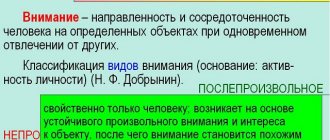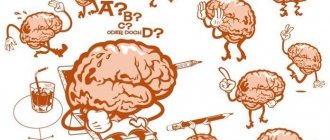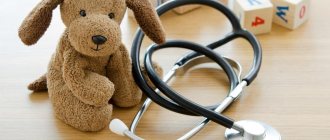Attention deficit hyperactivity disorder is a very unpleasant disease that can significantly affect the daily life and performance of every person. People of all ages are at risk of encountering it, but it causes the most problems for adults. Many patients do not receive any treatment, which is why they are forced to suffer from constantly occurring symptoms. This is due to the fact that treating ADHD in adults is a complex process that requires a lot of attention and effort. To achieve any result, returning to your usual state, you need to know not only the methods of dealing with the problem, but also what it is.
Classification, reasons
Many scientists question the existence of ADHD. The reason for this is the lack of an accurate ability to identify the disease in a patient through instrumental diagnostics, as well as the large difference in the number of people affected by the syndrome in different countries. Nevertheless, the problem is officially recognized, and attention deficit is classified as ICD code F90.0.
ADHD most often appears in childhood. The child does not seem as smart as his peers, he cannot complete all assigned tasks, and he behaves strangely. Adults encounter this problem very unexpectedly. As a rule, the syndrome still begins in childhood, but does not appear until many years later, when the person’s brain is under serious pressure from work, household responsibilities or problems. ADHD is associated with insufficient development of the psyche, which is not able to withstand the usual load for many people and fails. For the same reason, the disease may not show itself immediately.
Classification
A separate classification has been developed for ADHD, which reflects the predominance of one or another aspect of the disease. This helps to make a more accurate diagnosis and prescribe the most effective treatment. The species is determined at the diagnostic stage. There are 3 of them in total:
- ADHD-DD - symptoms are limited to attention deficit or are expressed only by it, the patient is absent-minded and forgetful, may look stupid even with a high IQ, performance is quite low, procrastination often appears;
- ADHD-H - symptoms are concentrated in the manifestation of hyperactivity, the patient has difficulty sitting still, he may rock in a chair or shake his legs, often leaves the workplace under various pretexts for the sake of physical activity, may become irritated because it’s hard for him to rest;
- ADHD-C – symptoms are mixed, the patient has difficulty focusing on one task, he is often distracted, forgets important information, and he always has a desire to do something physically.
Sometimes doctors separately identify an unspecified type of ADHD. This diagnosis is made if it is not possible to accurately determine all the features of the disease. It is often used for preliminary conclusions.
Causes
The exact causes of attention deficit disorder in adults still remain unknown. However, scientists were able to identify factors that could trigger the development of the disease. They can affect the body even during the period of fetal formation, which will cause the manifestation of ADHD in the future.
The main reasons are as follows:
- Genetic predisposition;
- Negative effects during pregnancy (infections, medications, alcohol, smoking);
- Risk factors for miscarriage during pregnancy;
- Chronic diseases in the mother at the time of pregnancy;
- Complications during childbirth, caesarean section;
- Incompatibility of mother and child by Rh factor;
- Diseases in a newborn;
- Taking strong medications in the first years of life;
- Unfavorable environmental conditions.
If an adult has the disease, then regular stress associated with serious stress on the psyche can provoke its awakening. Therefore, it is very important to dose heavy work at the slightest risk of having such a disease.
ADHD was first described in 1902 by D. Still based on a group of children with severe symptoms of inattention, hyperactivity and impulsivity.
ADHD in children
It appears already from the first months of life. The child falls asleep poorly and briefly and screams a lot. It’s hard to hold on and calm down. There is often a delay in intellectual and speech development. Later, difficulties in contact with peers are revealed (in kindergarten). Because of his impulsiveness and aggressiveness, kindergarten teachers often complain about such a child.
Often, with patient teachers and parents, such children manage to graduate from kindergarten. But after 7 years, problems increase at school. A hyperactive child is unable to sit through a lesson until the end; due to inattention, it is impossible to learn lessons. By adolescence, internal tension and anxiety, a tendency to aggressive and oppositional behavior, and alcohol and drug abuse are added to these symptoms.
Symptoms
The syndrome manifests itself very noticeably in adults. Sometimes from the outside it may seem that a person is simply tired, did not get enough sleep, or is faced with life’s difficulties. But those close to him know that he is always like this, and his unusual behavior and condition are associated with the disease. ADHD symptoms can be divided into several components, each of which includes specific features.
Concentration
The first symptom of the syndrome is impaired concentration, which manifests itself in all daily activities, work and communication. Along with it, there is often a complete loss of interest in many phenomena that previously attracted the patient. Violations include the following manifestations:
- Abrupt disconnection of the brain from talking or doing work;
- Frequent distraction from the activities being performed;
- Inability to focus normally on one phenomenon or action;
- Lack of attention to minor details;
- Rare completion of tasks by 100%;
- Inattentiveness in conversation, inability to retell the dialogue.
In some cases, this symptom becomes reversed. Then the patient will begin to experience hyperconcentration. He will immerse himself in the work at hand so deeply that he will lose track of time and stop paying attention to everything that is happening around him.
Organization
Signs of attention deficit in adults bring many problems, in which disorganization plays an important role. It occurs in almost all patients, having a negative impact on work efficiency and the success of completing assigned tasks. The symptom may appear like this:
- Lack of time for household chores;
- Regular procrastination “for later”;
- Difficulty starting or completing a business;
- Inability to calculate time;
- Forgetfulness, loss of even important information from your head;
- Frequent and forced search for small things (keys, remote control, etc.).
Such people always forget about something, cannot find things that they themselves held in their hands 5 minutes ago, are late for important meetings and suffer from a constant lack of time.
Emotions
ADHD is often accompanied by unpleasant emotions. Adults experience feelings of anger or frustration that are associated with constant worries. They may manifest themselves as the following symptoms:
- Inability to control emotions;
- Frequent overwork;
- Irritability, mood swings, short temper;
- Low self-esteem, resentment;
- Expectation of bad results;
- Constant lack of motivation to perform various tasks.
Many patients become closed people because... communication often causes them emotional difficulties, and work leads to disappointment. They are constantly sad, their thinking is depressive, there are no expectations for positive changes.
Hyperactivity
Increased activity and energy become a real problem, because... the person is unable to concentrate on one thing, and is unable to remain calm or sit still. The patient will encounter the following signs of the syndrome:
- Constant excitement, desire to do something;
- Motor restlessness, lack of perseverance;
- Craving for risky actions and vivid impressions;
- Frequent changes of thoughts, desire to multitask;
- Rapid onset of boredom during monotonous work;
- Strong talkativeness, annoyingness.
A person with ADHD is virtually unable to sit still. He tries to constantly move, takes on many things at once, talks often, and thoughts in his head very quickly replace one another.
Impulsiveness
Impulsivity refers to the inability to control one's words and actions. It is part of the symptoms of ADHD and can cause a lot of inconvenience, as well as spoil relationships with other people. Often patients do not even notice the incorrectness of their behavior. The symptoms are as follows:
- Inability to control yourself;
- Sharp expressions of thoughts;
- Interrupting the interlocutor;
- Spontaneity of dangerous actions.
Some patients behave antisocially, which is why they are not accepted by other people. It is possible to develop drug addiction or alcoholism, which is associated with a craving for addiction and risk.
Statistics show that women are more likely to have problems with concentration and organization, while men are more likely to have problems with hyperactivity and impulsivity.
How does ADHD treatment in Israel differ from treatment in the CIS countries?
- Friendly attitude towards children with ADHD. Unlike post-Soviet countries, in Israel children with ADHD are not treated as juvenile delinquents, and their parents are not condemned for failing to raise their children. In Israel, such children and their parents can count on friendly support and assistance from specialists.
- Extensive experience of Israeli specialists. Israeli doctors and teachers have many years of experience working with children diagnosed with ADHD. In the post-Soviet space, such work is practically not carried out.
Basic treatment
Treatment can begin only after a final diagnosis has been made. However, there are difficulties with this, because the disease can be confused with other disorders in the body. The doctor experiences even more problems from the inability to identify the disease using classical diagnostic methods. You have to make do with a regular survey, as well as the MOXO test, which allows you to study the patient’s symptoms in more detail using a computer program.
When the doctor can say for sure that the patient has ADHD, treatment should begin immediately. It includes several methods of influencing the disease, each of which is effective in its own way. It is worth considering that no one will be able to recover completely. But the right approach to therapy will eliminate most symptoms.
Drug therapy
Only a doctor can make an exact decision on how to treat attention deficit in adults in each specific case. It is strictly forbidden to prescribe medications on your own, as well as to adjust the dosage prescribed by a specialist.
The main method of therapy is psychostimulants: Adderall, Dexedrine or Ritalin. They are banned in many countries, which is associated with a lot of side effects. Therefore, they are replaced with Atomoxetine tablets or similar ones.
Additionally, the patient is prescribed other medications:
- "Bupropion";
- "Dizpramin";
- "Clonidine";
- "Nortriptyline."
The exact prescription depends on the symptoms of the disease and the individual characteristics of the patient. In some cases, you can do without medications at all.
Psychotherapy
The use of psychotherapy can have a positive effect in almost 100% of cases. Professionals will help you solve many problems, as well as adjust your thinking so that there are fewer difficulties in later life.
The first component is personal and family psychotherapy. They help you understand yourself and your relationships. The specialist will teach you how to properly cope with the difficulties that arise with ADHD and will contribute to the development of a positive outlook on life, which is very important with such an illness.
Cognitive behavioral psychotherapy becomes the second component. It helps eliminate everything negative in a person’s life. The main goal of the method is to have a practical impact on the patient’s everyday life to eliminate all factors that provoke manifestations of attention deficit disorder.
Folk remedies
Treatment of attention deficit disorder in adults can be done using folk remedies. They calm the body, normalize brain function, and also promote more productive activity. The usual herbal-based sedatives (Valerian, Persen) are perfect for this. You can also prepare the medicine yourself using the following recipes:
- Hop cones. Boil 2 cones in 300 ml of water for about 2 minutes, then keep in a closed container for 5 minutes and strain. Take a spoon three times a day.
- St. John's wort. Pour one spoon of chopped herb into 300 ml of water, boil for 5 minutes, let it brew for 10 minutes, and then strain. Drink two spoons three times a day.
- Lavender. Pour 150 ml of boiling water over one spoon of lavender, leave for 10 minutes, strain. Take a spoonful morning and evening.
You can also prepare herbal teas from several herbs, take baths with sea salt or take Ginkgo Biloba. Among the unusual options, it is worth considering placing a bag of dry valerian root near the bed.
Exercises
A special method of combating ADHD is exercise. Their regular implementation helps to get rid of most of the symptoms of the disease, as well as normalize the general condition of the body. The treatment of ADHD in adults is carried out by exercise by increasing dopamine, serotonin and other important hormones.
There is no need to choose any special workouts. It is enough to do simple physical exercises every day. You can start with morning exercises or jogging in the fresh air. In the evenings it is recommended to just walk. If you have the desire, it will be useful to seriously engage in any sport, devoting a lot of time to it.
Approximately 6% of people suffer from ADHD. Only a third of them receive the necessary treatment and try to overcome their symptoms.
Disorder or personality trait?
The concept of neurodiversity, an approach that views different neurological features as a result of normal variations in the human genome, is now gaining popularity. Adherents of neurodiversity are interested in both sexual orientation and gender self-identification, as well as some genetically determined mental illnesses, including autism, bipolar disorder and attention deficit disorder. Some scientists believe that many of the behaviors that lead to a diagnosis of ADHD are natural personality traits and do not indicate unhealthy abnormalities. But because such traits make it difficult for a person to function in modern society, they are labeled as “disorders.”
Psychotherapist Tom Hartman developed the spectacular “hunter and farmer” theory, which posits that people with ADHD retain the genes of primitive people responsible for behavior optimal for hunters. Over time, humanity switched to agriculture, which required more patience, and “hunting” qualities - quick reactions, impulsiveness, receptivity - began to be considered undesirable. According to this hypothesis, the problem lies only in setting tasks, and the ability of people with the syndrome to “hyperfocus” - strong concentration on a task that is subjectively interesting to them to the detriment of all others - can also be considered as an evolutionary advantage. True, Hartman is difficult to consider as an objective researcher - his son was diagnosed with ADHD.
But in any case, there is a sound grain in this theory: since one of the most important criteria of mental health is the ability to successfully cope with everyday tasks, many problems can be mitigated by choosing a suitable field of activity. That is, one where routine processes and patience play a lesser role and a “sprinting” temperament, the ability to improvise, curiosity and the ability to easily switch between various activities are valued. For example, it is believed that with ADHD you can make a good career in sales or entertainment, in the arts, and in “adrenaline” professions (say, a firefighter, a doctor, or the military). You can also become an entrepreneur.
Additional recommendations
It is not so easy to cure most of the symptoms, but you can increase the effectiveness of all basic methods by following simple recommendations that relate to a person’s daily life. The more of them are implemented, the better for combating the disease.
Recommendations:
- Proper nutrition. You should eat every few hours, following the schedule. It is very important to include enough foods with fish oil, iron, iodine, zinc and magnesium in your diet, and it is recommended to avoid coffee.
- Schedule. ADHD symptoms require a very serious approach to planning your day. Therefore, you should create a to-do sheet in which you can mark the completion of tasks for each day.
- Relaxation. You need to learn how to relax properly. The best way to do this is to sign up for a meditation or yoga class. Both options will help you find the right approach to relaxation and spend your time with ease.
- Quality sleep. At night, the room should be dark and quiet, and shortly before falling asleep, you should give up electronic devices, trying to relax as much as possible. It is better to go to bed at the same time every day.
- Special trainings. Trainings related to organization are highly effective. Every patient should visit them.
This list can be supplemented with personal rules or doctor’s recommendations that can have a positive impact on the disease. For example, the rule of self-control. Its essence is to regularly monitor your behavior and not be distracted by extraneous things, trying to deliberately concentrate.
Some doctors recommend using the information starvation method. It requires giving up all things that provide new information and communicating with people.
Diagnostics
The diagnosis of ADHD is not made solely on the basis of existing complaints. To accurately confirm the diagnosis, it is necessary to conduct some examinations. First of all, you need to visit a neurologist, psychiatrist and psychologist.
During the consultation, the doctor collects anamnesis, conducts various tests, conversations, and diagnostic surveys.
In order to identify the cause of the development of ADHD, consultations with other specialists may also be required, as well as instrumental and laboratory examination methods, such as: EEG, MRI of the brain, general and biochemical blood tests.










